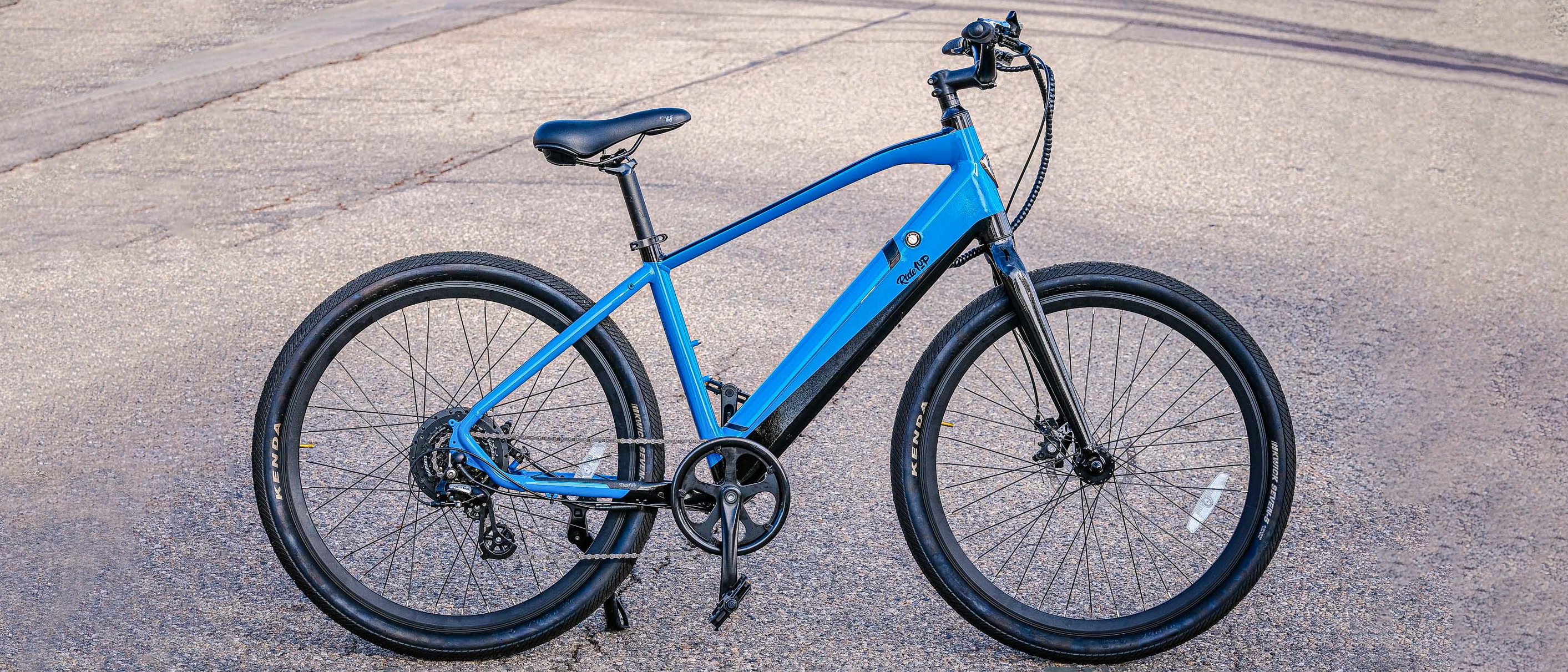Tom's Guide Verdict
A fun, attractive bike with throttle and pedal-assist options, the Core-5 is best for riders looking for a simple commuter on relatively flat terrain.
Pros
- +
Looks cool
- +
Fun, zippy ride
- +
Throttle-assist
- +
Great price
- +
Removable battery
Cons
- -
Motor is underpowered
- -
Not as comfortable for taller riders
- -
No integrated lights
Why you can trust Tom's Guide
Weight: 49lbs (advertised)
Cargo capacity: 275lbs
Motor: 48V Geared Hub Shengyi, 28mph (500w)
Battery: 48V 10.4ah Reenton Eel Pro LG cells with Smart BMS
Max assist speed: 28mph
Frame material: aluminum
Wheel size: 27.5-inch
Brakes: Tektro mechanical disc
Drivetrain: Shimano 7-speed, 11-32 cassette and 44T chainring
Throttle: yes
The Core-5 from Ride1Up is solid proof that an e-bike doesn’t have to be expensive or fancy to be good. Nor does a bike need to be expensive to look great.
While the Core-5 doesn’t have a host of high-end parts, it does exactly what you need it to do: assist you when you’re pedaling through town on your errands. It hits a great price, and the ride is fun and comfortable. The motor isn’t the strongest you can get, but it’s strong enough to help you on your way through flat and lightly rolling terrain. It’s one of the best budget electric bikes to check out if you’re looking to save a little cash.
Ride1Up Core-5 review: Price and availability
The Core-5 costs $1,195 for both the standard and the step-thru frame design. You can purchase the Core-5 through the Ride1Up website, and shipping on bikes is free within the lower 48 states. (Shipping is $100 to Canada.) There is no dealer locator on the Ride1Up website.
Once the bike arrives, you will need to build it. That involves putting on the handlebars, front wheel, pedals, and a few adjustments. Ride1Up includes some tools to do most of that. This takes some basic bicycle mechanic skills. If you aren’t comfortable building the bike, consider taking it to a local bike shop to ensure it is put together properly and safely.
Ride1Up also offers a 30-day return policy and a 100% money back guarantee within that time period. There is a 1-year warranty on the Core-5 as well.
Ride1Up Core-5 review: Design
The Core-5 comes in two different frame configurations: standard or step-thru. The latter allows for easier mounting and dismounting by eliminating the top tube entirely. The Core-5 comes in one size that Ride1Up says will accommodate riders from 5’6” to 6’4.” There are three color options.
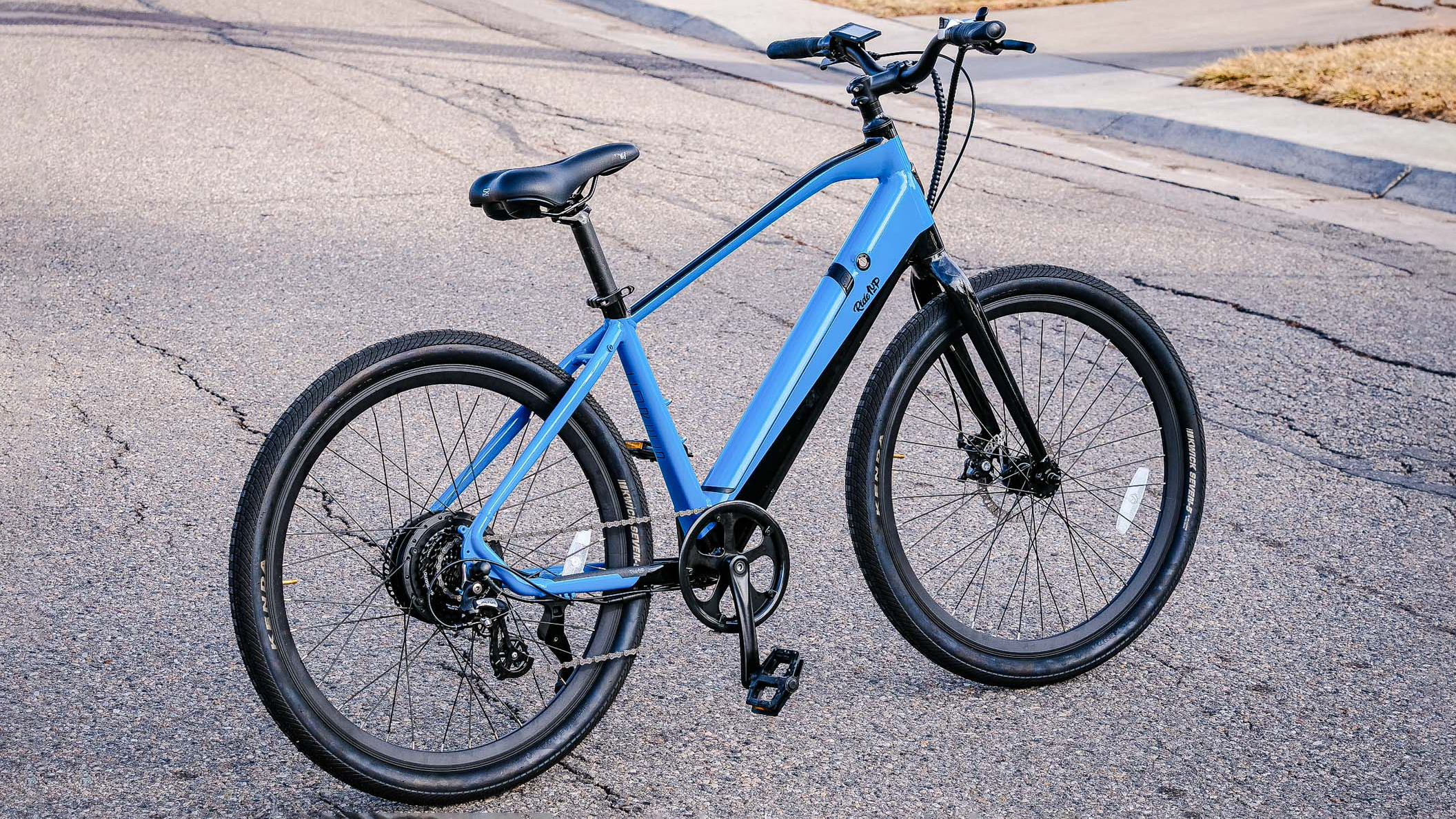
While it’s clear at first glance that the Core-5 is an e-bike — thanks in large part to the big down tube that houses the removable battery — the bike itself looks fairly sleek. A shapely top tube/head tube junction makes the Core-5 look high-end though the bike is positioned as an entry-level e-bike in price and build.
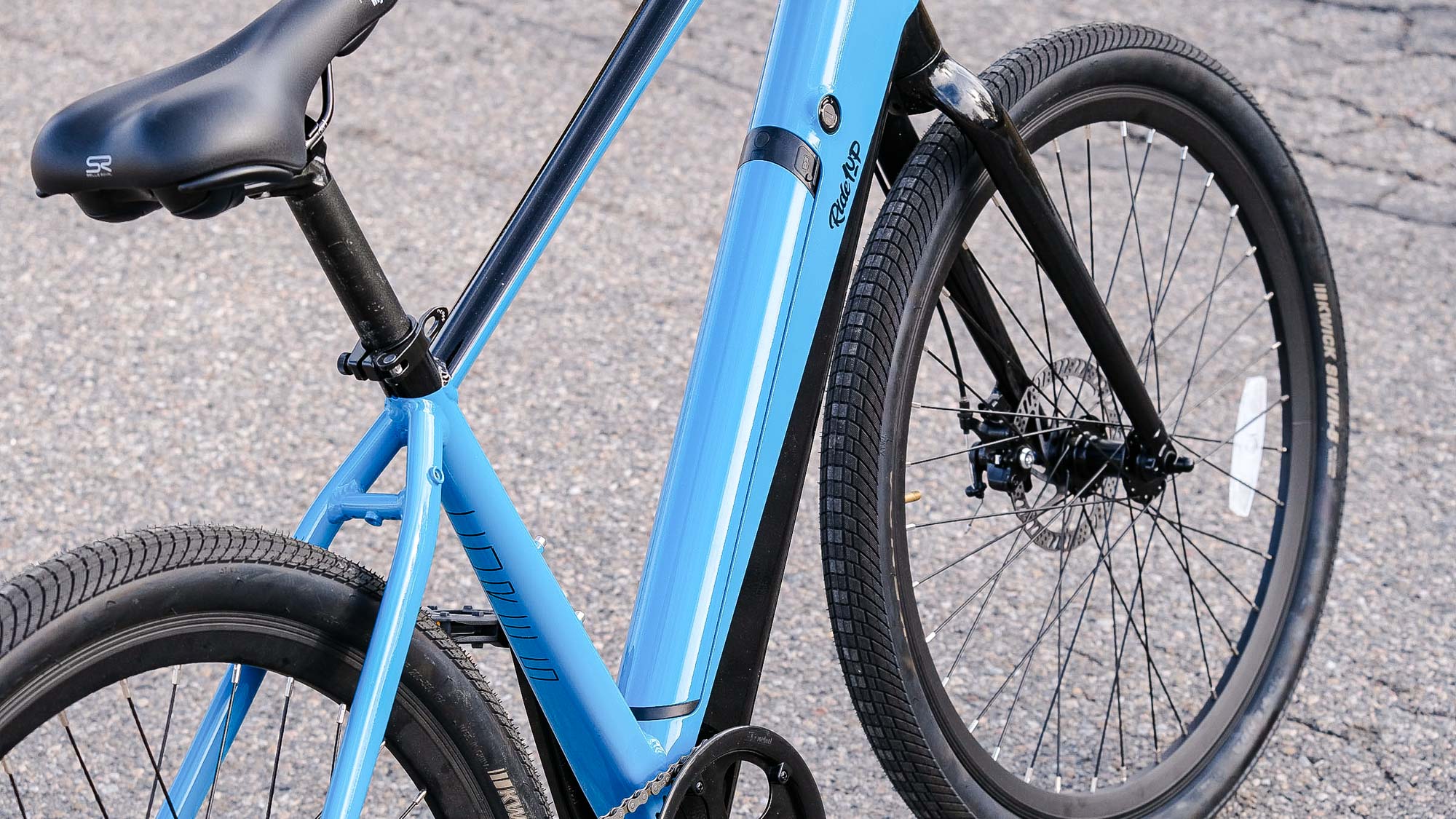
The Core-5’s 27-5-inch wheels help keep the standover height low to accommodate a wider range of riders. My test bike came with 2.2-inch wide tires, which you can run at a low tire pressure to increase comfort and compliance.
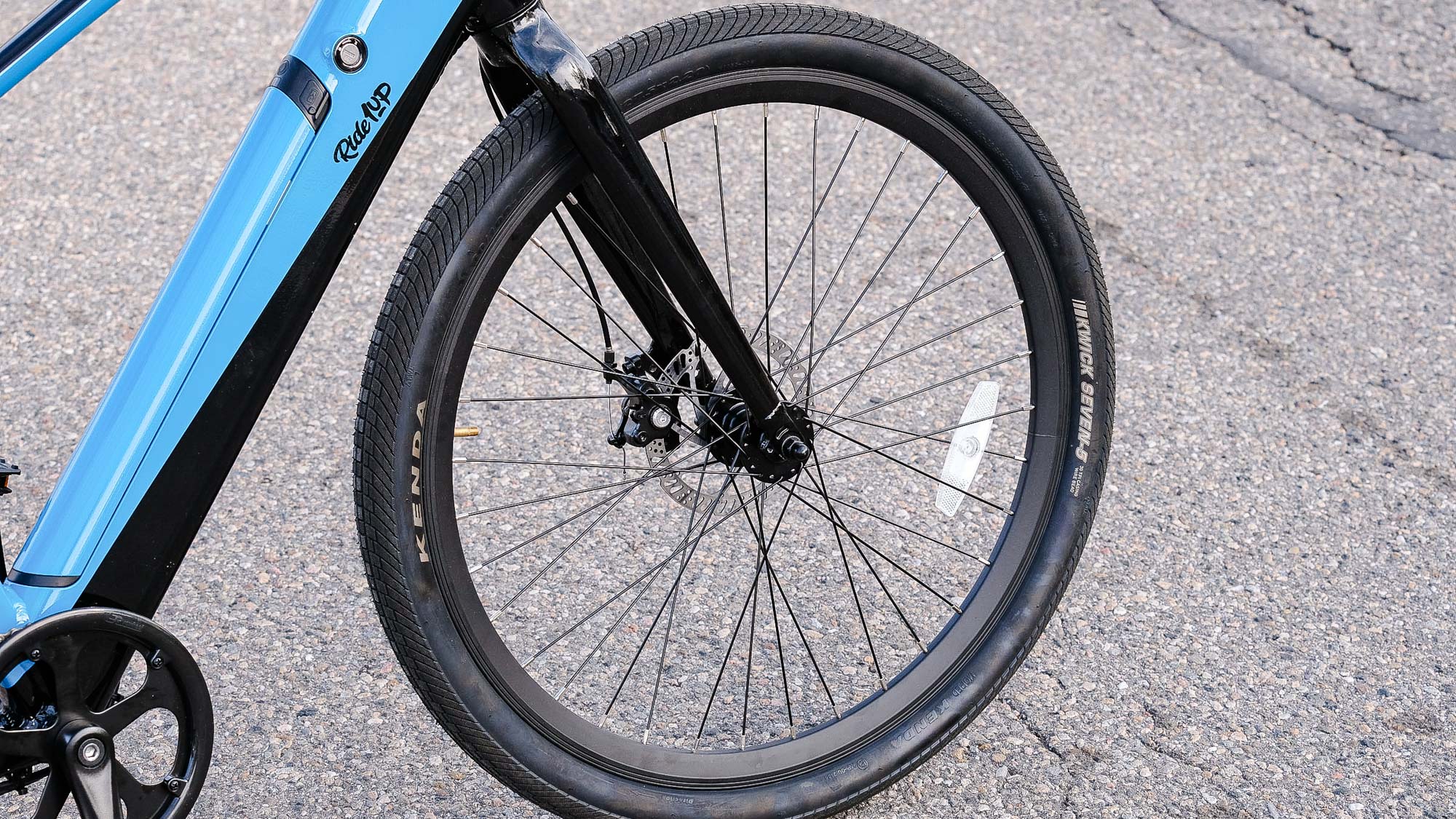
Tektro mechanical disc brakes offer plenty of stopping power, which comes in handy if you’ll be loading the bike with cargo or a kid carrier.
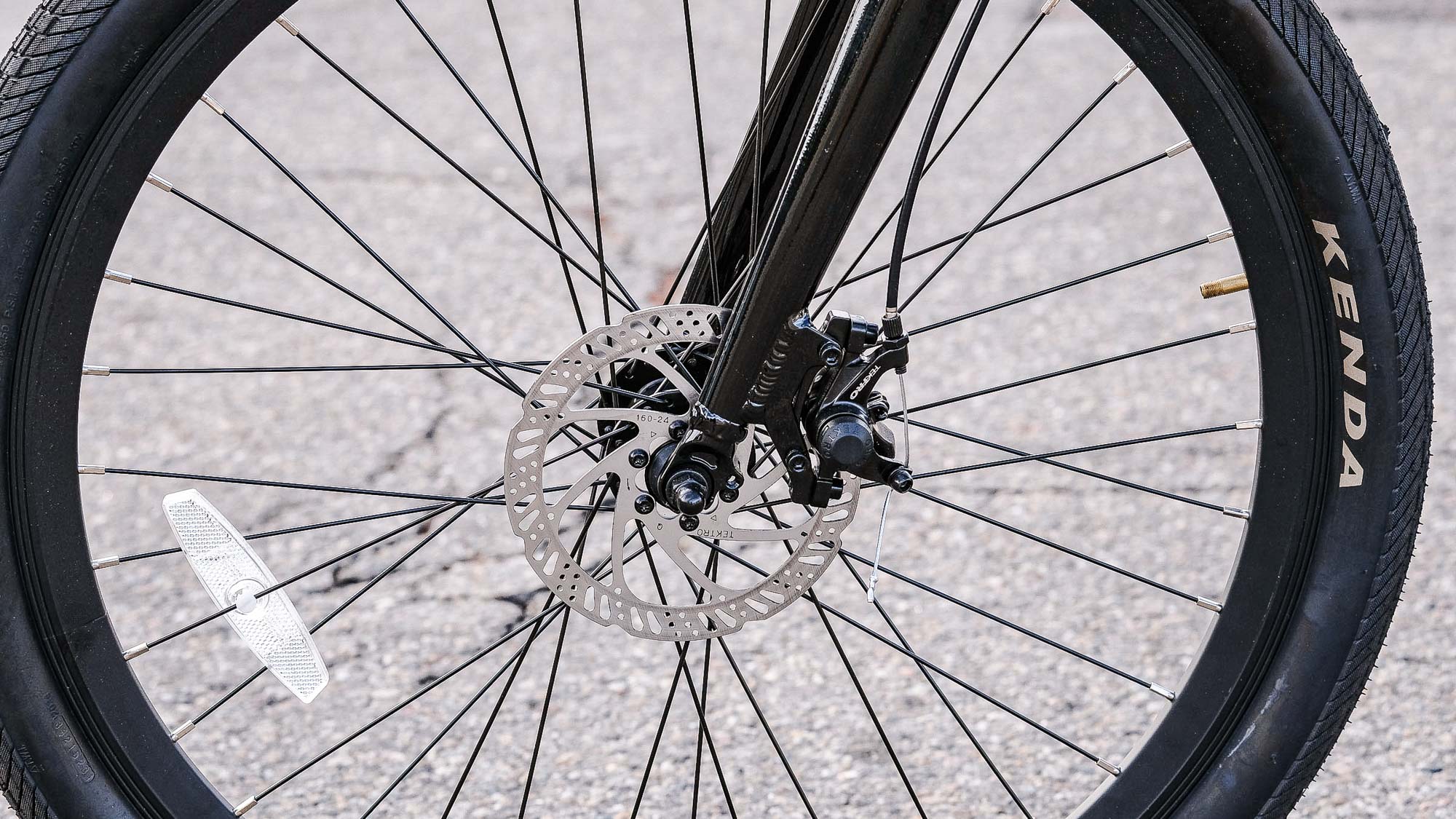
The motor lives in the rear hub and is unbranded; Ride1Up lists the manufacturer as Shengyi. It works in conjunction with a Shimano 7-speed drivetrain that gives you plenty of options for riding both with and without motor assistance.
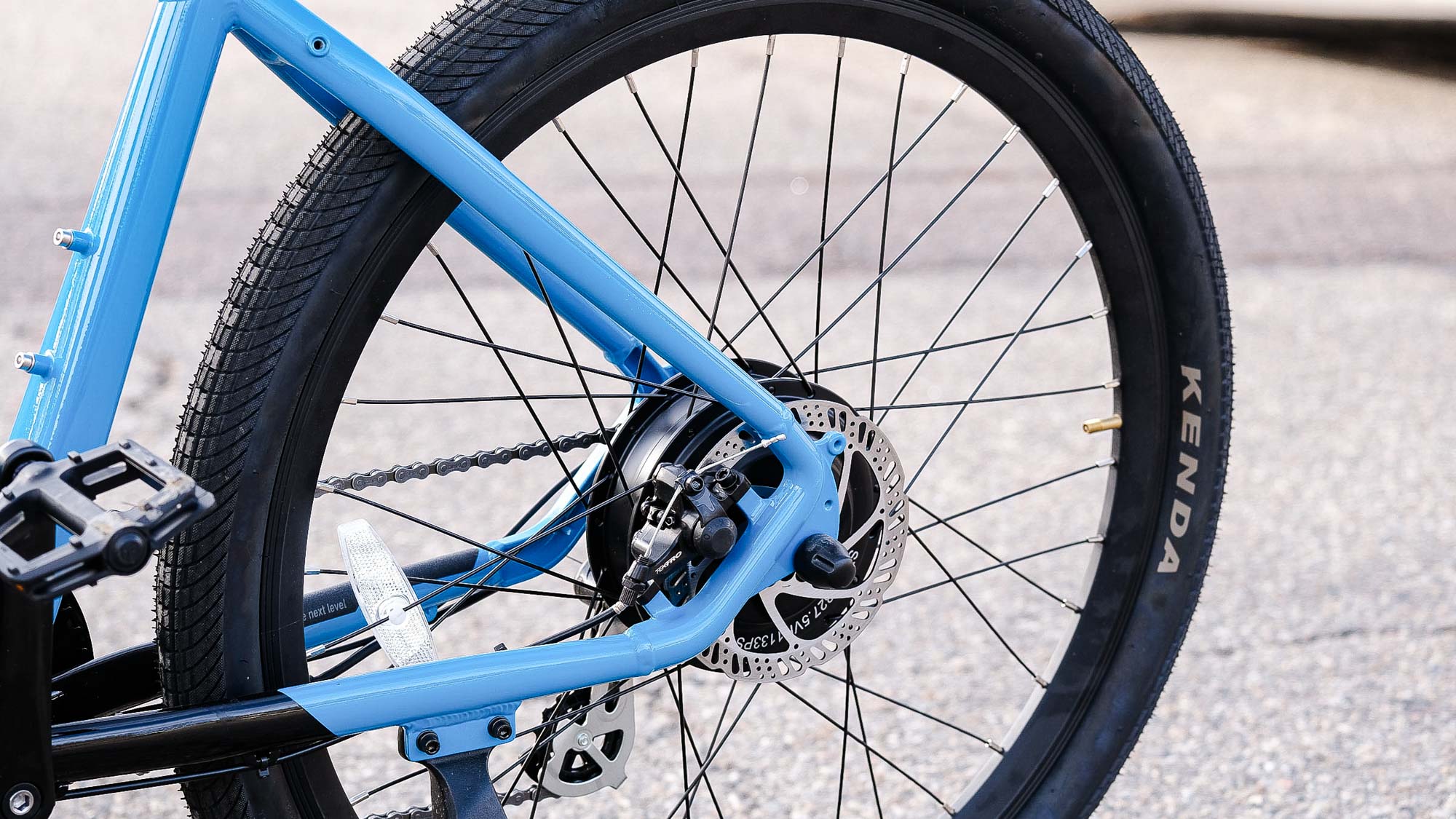
The Core-5 is classified as a Class 3 e-bike. It features a pedal-assist function that assists you up to 28mph, and a throttle function that assists up to 20mph. The pedal-assist modes are controlled via buttons mounted on a black and white LCD head unit mounted on the handlebar. This is also where you’ll see your current speed, odometer, and other ride information.
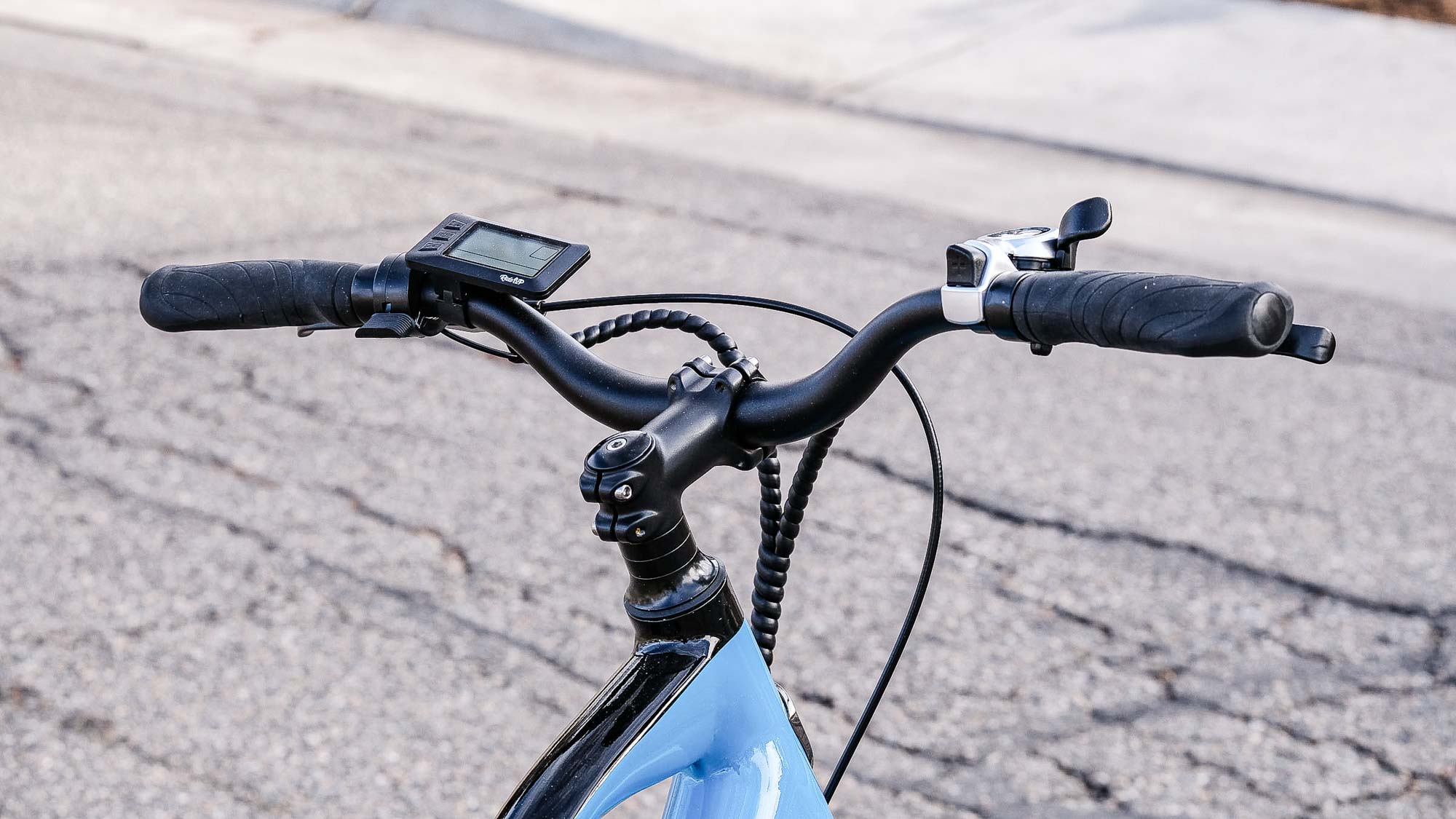
There is a kickstand mounted to the chainstay and it’s stable and easy to use. But unlike many other e-bikes even in this entry-level price range, the Core-5 does not include any integrated front or rear lights.
Ride1Up Core-5 review: Performance
If you’re not savvy with tools or have never built a bike before, chances are you’ll still be able to build up the Core-5 out of the box. But it’s always best to take it to a professional to ensure everything is adjusted properly. My test bike needed gear and brake adjustments out of the box, and all bolts needed to be properly torqued to spec.
The wheels do not come with quick release levers. Instead, you’ll need to bolt them on. This makes it less convenient to load the bike into the back of a car, but otherwise, bolts offer peace of mind to riders who may not be familiar with how quick release levers work — it also makes them harder to steal.
The Core-5 can be turned on using the button on the LCD display unit mounted on the handlebar. You can also adjust the assist level from there. The screen is easy to read, and it clearly displays your speed, total miles, assist mode, battery level, and other vital ride information.
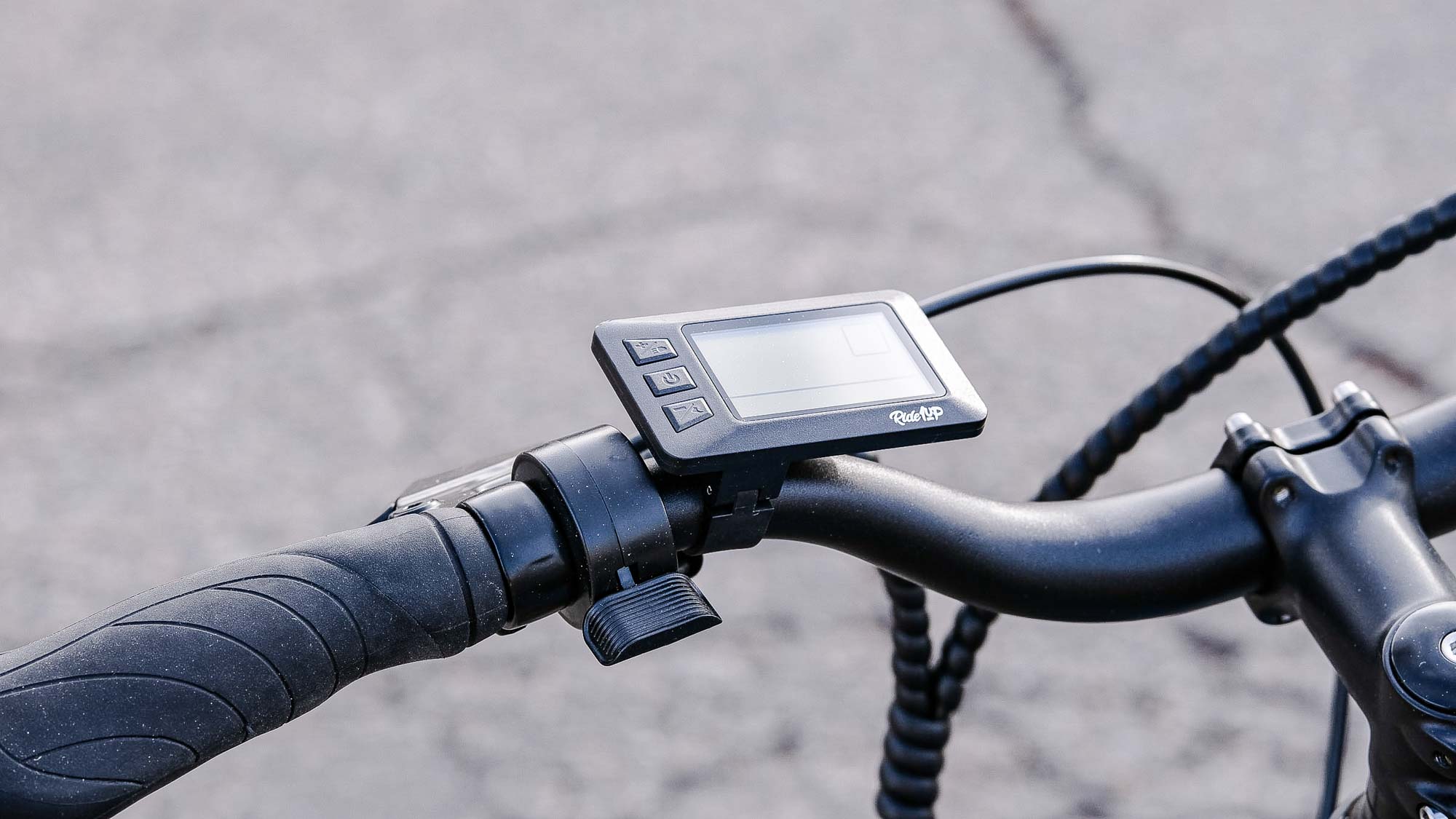
The throttle lever sits next to the grip on the left side of the handlebar. It activates smoothly — so smoothly, in fact, that it’s easy to punch it a bit too hard and get going very fast, very quickly. It’s best to go easy on the throttle lever unless you’re starting from a dead stop on a hill. Overusing the throttle will also kill your battery quickly, so it’s best to use it sparingly.
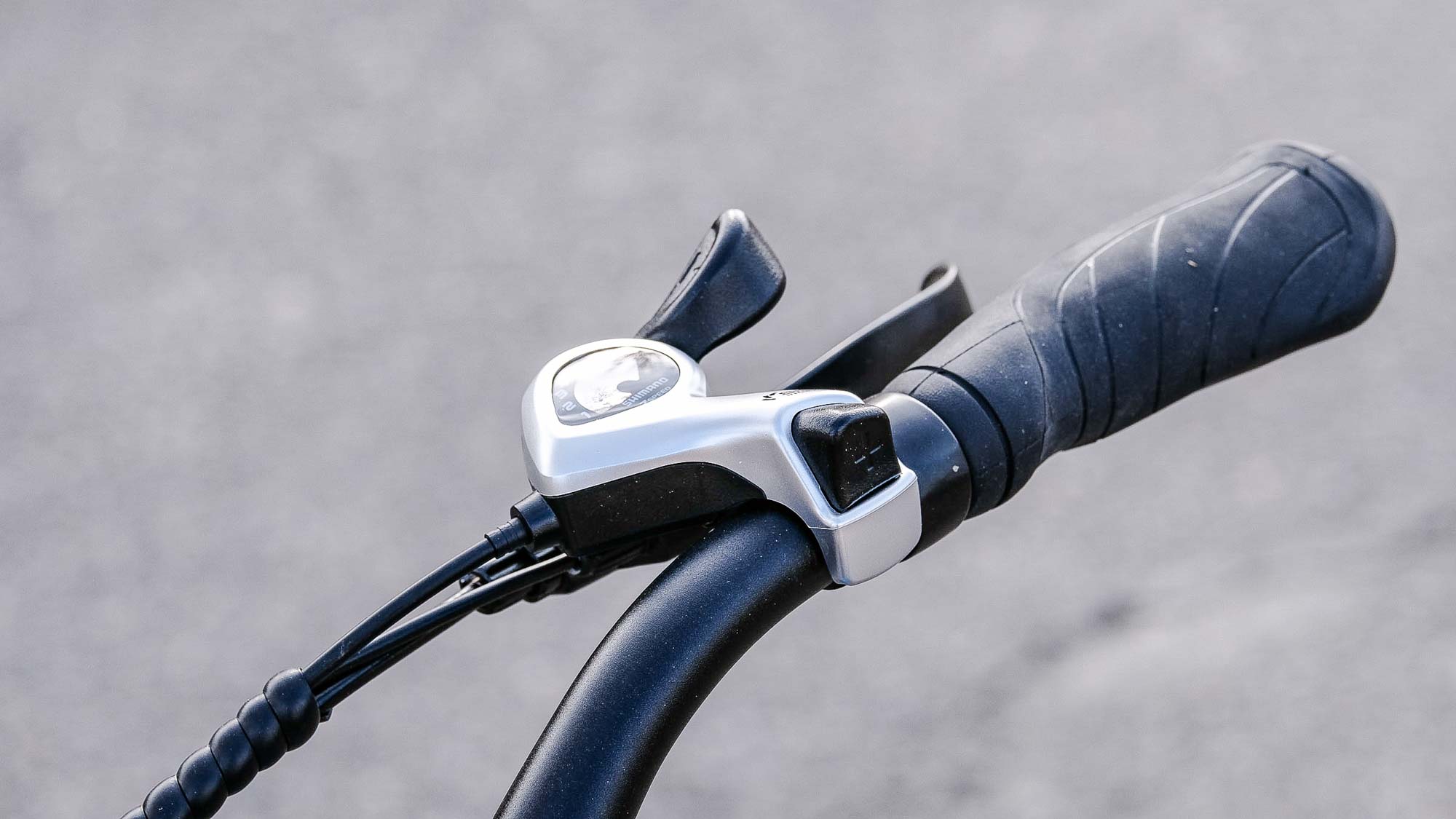
The Core-5 felt a bit small to me. I’m 5’11” with a 30-inch inseam, and I had to adjust the seat quite high. While Ride1Up says the Core-5 is appropriate for riders up to 6’4,” I wouldn’t recommend this bike for anyone taller than 6 feet.
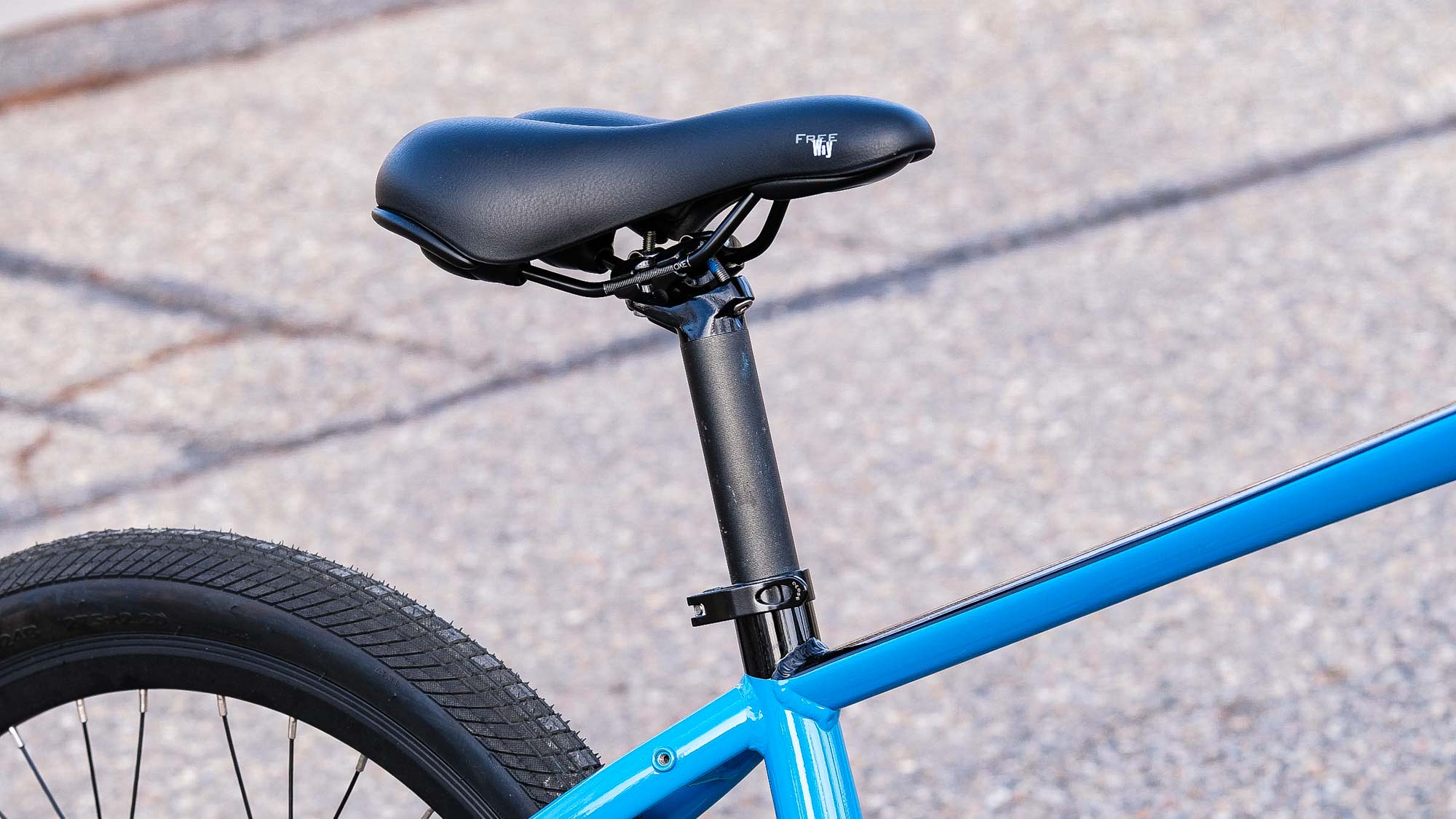
Once I found my riding position, the Core-5 feels comfortable and easy to steer. I dropped a few PSI out of the wide tires to make them more cushy, which came in handy on rough roads.
The motor offers plenty of assist on flat roads, and it engages pretty quickly when you start pedaling. There’s very little lag between pedal input and the assist kicking in, which makes it much easier to get going from a dead stop.
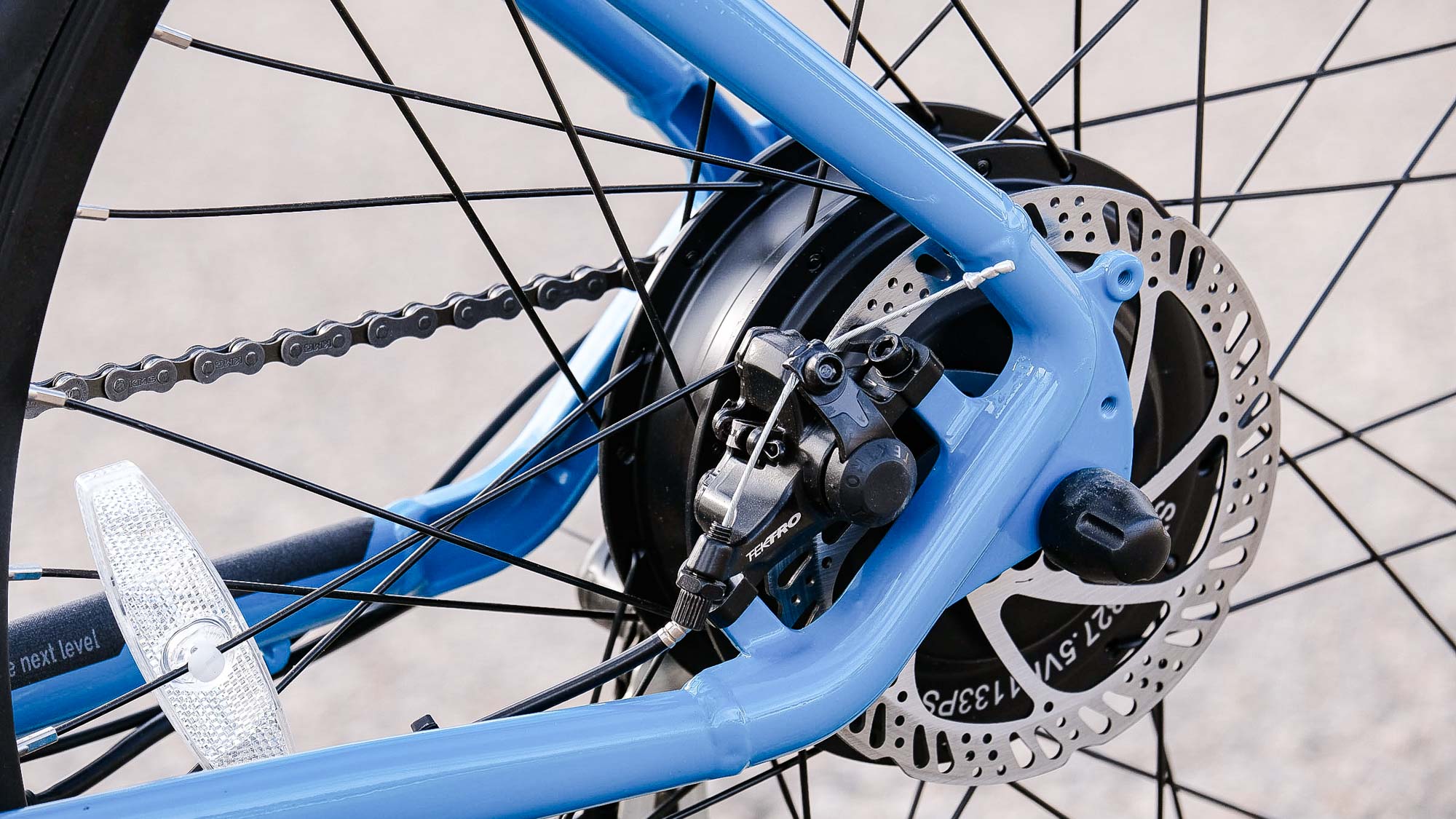
But the motor also feels underpowered, especially when you try to get up steeper pitches. The hub-based motor looks identical to the one on the Aventon Soltera, which is also unbranded. And both bikes felt similarly bogged down on hills, though the Core-5 definitely gets off the line a lot more quickly.
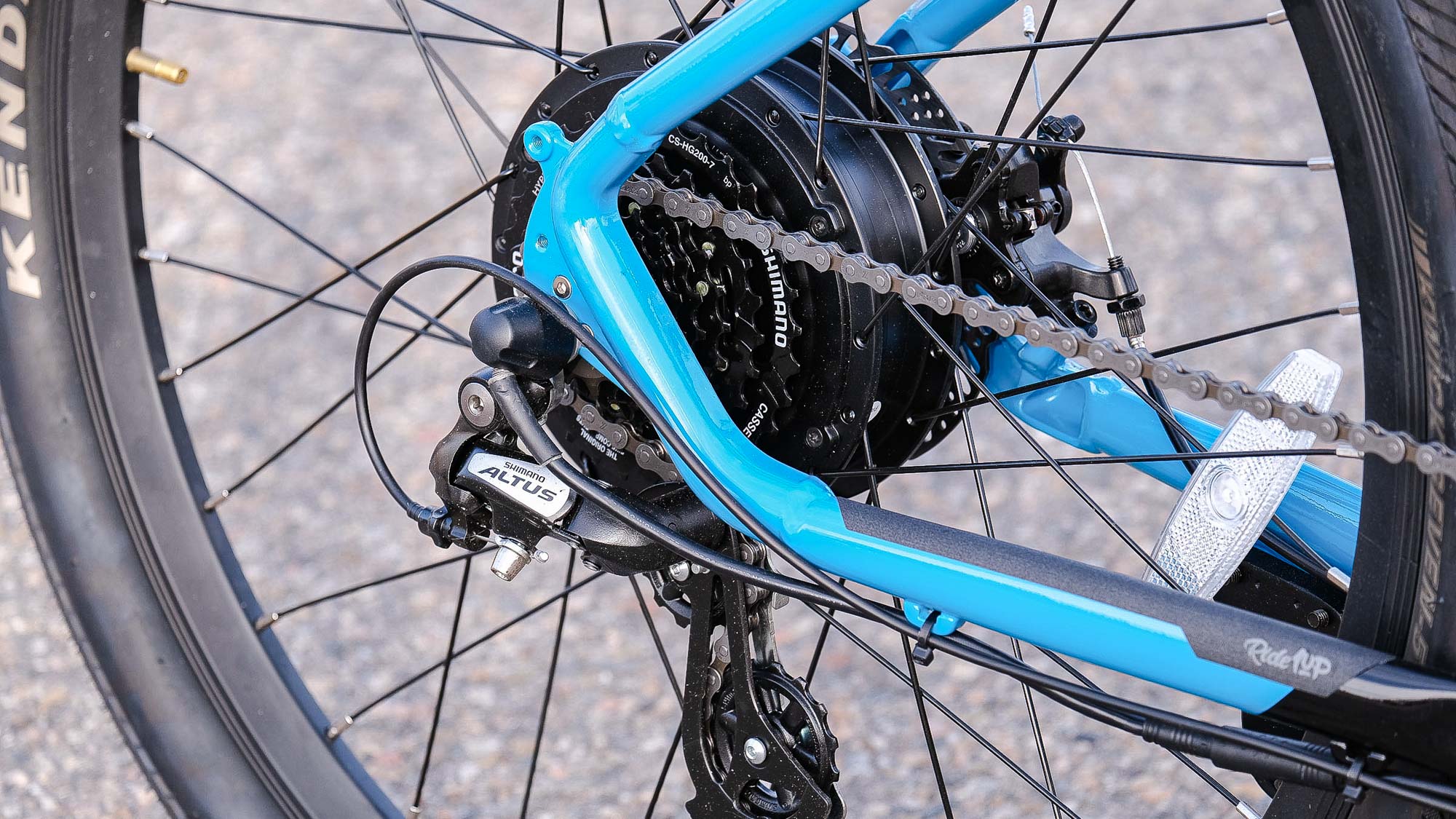
I found it best to use the throttle when starting from a dead stop on hills. But even then the bike struggles to get going. In all other riding situations, the assist level felt powerful enough, but if you live in a very hilly place, you might find the power level disappointing.
That said, Ride1Up wisely built the Core-5 with a 7-speed Shimano drivetrain. You’ll have a low bailout gear to spin more easily up steep hills when the assist level may not pack quite enough punch.
The shifter is easy to use, with a large lever to shift in one direction and a large button to shift in the other.
I was happy to see that the Core-5 comes with disc brakes. At this price level, you’ll get mechanical disc brakes rather than hydraulic disc brakes. Mechanical disc brakes aren’t as powerful or consistent as hydraulic disc brakes, but I found the braking power on the Core-5 to be quite good, especially in wet conditions.
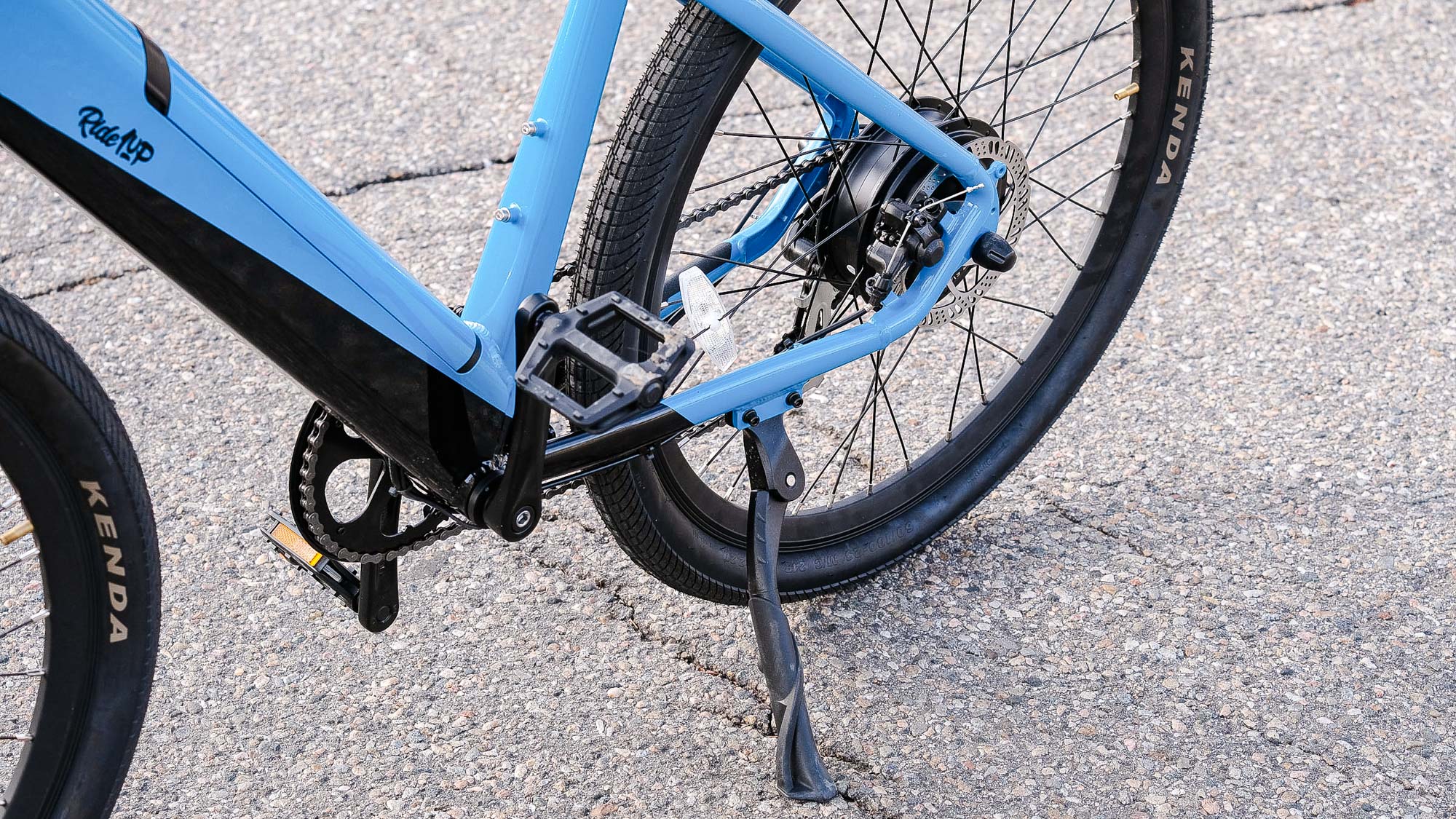
The Core-5 also comes with a kickstand mounted to the chainstay. This is a nice feature; the kickstand feels stout and stable, and it tucks neatly out of the way when not in use.
Ride1Up Core-5 review: Battery life and range
The Ride1Up website says Core-5’s battery is a 48V, 10.4ah Reention Eel Pro battery with LG cells and a Smart Battery Management System. The only branding on the battery itself is Tian Fu Li, which is likely where Reention sourced its batteries.
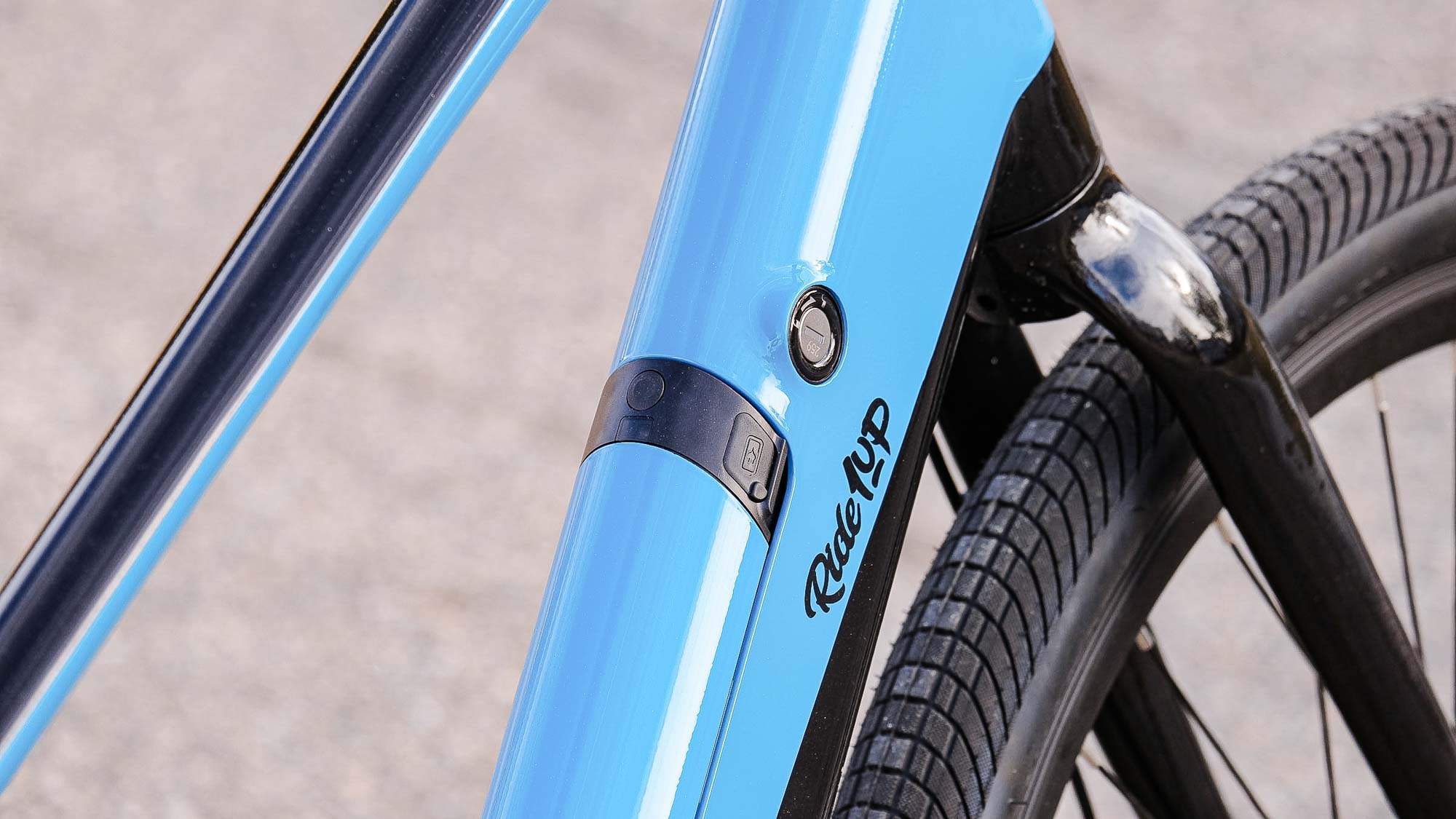
Ride1Up says the battery range is between 20 and 40 miles, depending on what assist level you use, among other factors. This is a fairly typical battery range for most e-bikes.
On my first ride of about four miles, I was able to rip through more than half of the battery life by relying primarily on the throttle. However, I used the throttle on this ride far more than I would normally on any ride just to see how it would affect the battery.
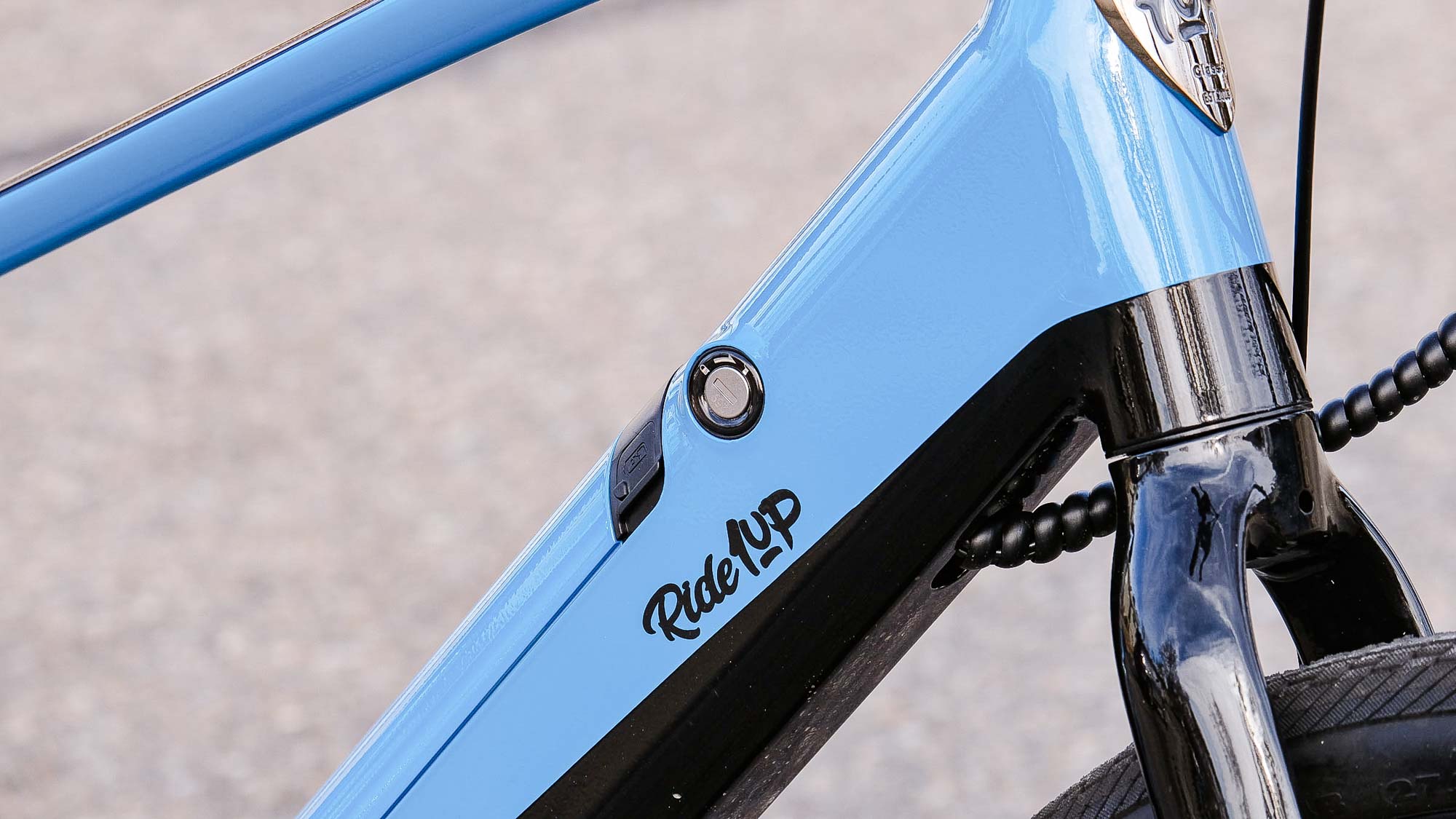
When I stopped using it and dropped the pedal-assist to the 3rd assist level (out of five), the battery life indicator actually gained another bar. With judicious use of the throttle and the pedal assist set at 3 or 4, Ride1Up’s estimation of 20 to 40 miles seems accurate.
After 8.5 miles of using the throttle almost exclusively, the battery was nearly completely drained. Of course, in real-life situations, I wouldn’t use the throttle nearly enough. But it’s a good reminder that the throttle is meant for occasional use.
Ride1Up Core-5 review: Accessories
Ride1Up offers a small but well-chosen crop of accessories for the Core-5. Aside from a replacement battery ($459), you can get essentials like a replacement charger ($40), replacement keys ($60), or replacement displays ($55 to $80).
Or you can customize your Core-5 to haul cargo with the Cargo Trailer ($150) and Rear Rack ($50), as well as panniers ($60).
You can view the full list of accessories for the Core-5, and order them, on the Ride1Up website.
Ride1Up Core-5 review: The competition
Aventon’s Soltera is a close competitor to the Core-5. Taller riders will probably fit better on the Soltera, which features larger 700c wheels.
Both bikes feature a hub-mounted motor, and both bikes feel similarly underpowered on hills. But the Core-5 performs better in general, and the assist engages far more quickly on the Core-5 than on the Soltera.
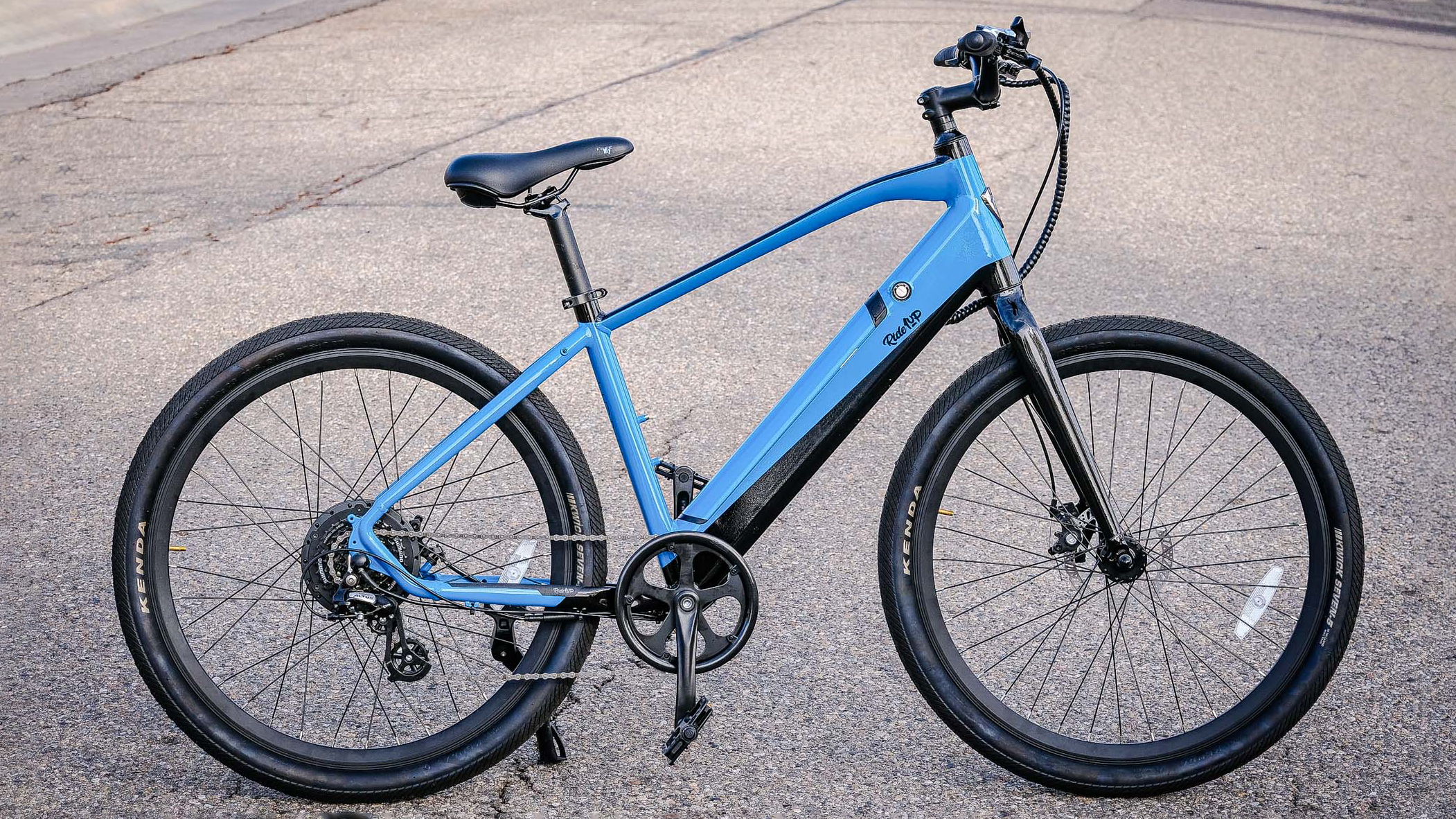
Other bikes in the category of inexpensive e-bikes include the $999 Swft Volt. The Volt is a single-speed bike and the battery is not removable.
The Core-5 includes a 7-speed drivetrain; with the Soltera, this is available as an upgrade.
Ride1Up Core-5 review: Verdict
The Core-5 offers an attractive, comfortable ride that’s suitable for flat terrain. While the motor feels underpowered on steeper pitches, it offers plenty of assist for navigating generally flat city streets. (If you live in hillier areas, you'll want to check out more powerful options on our best electric bike list.) The motor engages quickly when you start pedaling or when you depress the throttle.
Among electric bikes that cost around $1,000, taller riders may be more comfortable on the Aventon Soltera; however, if you want a 7-speed drivetrain with that bike, it will cost you extra. But if you’re shorter than six feet, and are looking for a basic, inexpensive e-bike to get you around town, the Core-5 is a good bet.
Dan Cavallari is the former technical editor for VeloNews Magazine, who currently reviews electric bikes, bike lights, and other bike accessories for Tom's Guide. In addition to VeloNews, his work has appeared in Triathlete Magazine, Rouleur Magazine, CyclingTips.com, Road Bike Action, Mountain Bike Action, CycleVolta.com, Tomsguide.com, and much more. Dan also hosts two podcasts on his site, Slow Guy on the Fast Ride: One is about cycling and other outdoor activities, while the other looks at mental health issues. Most recently, Dan also covered the 2022 Tour de France. Dan lives outside of Denver, Colorado with his family.
